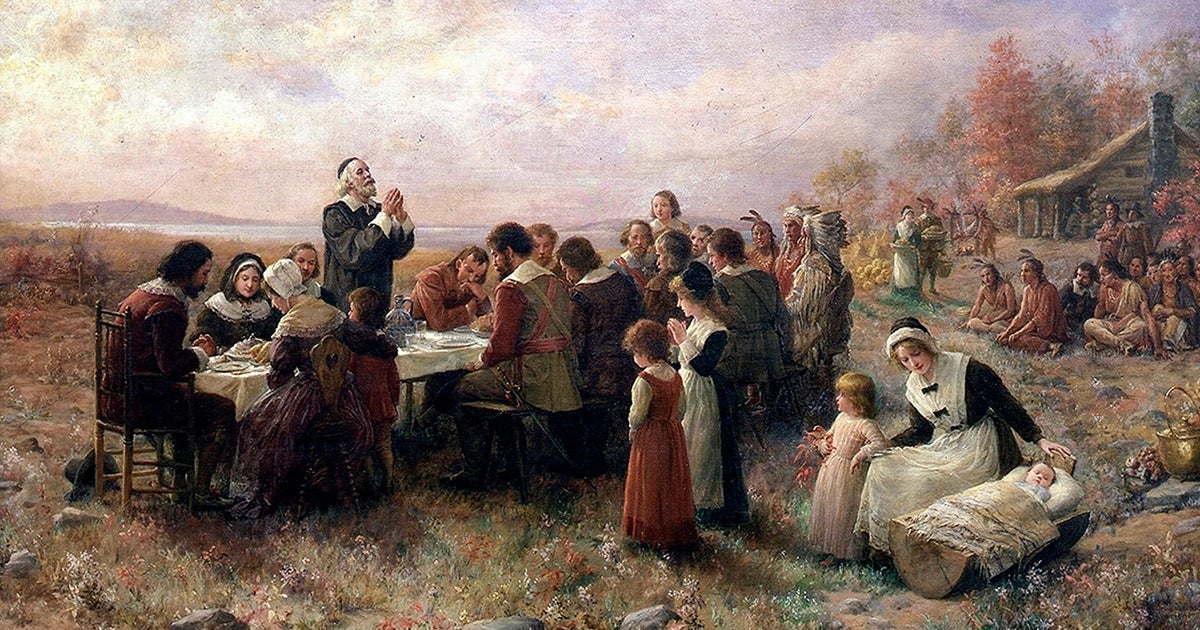
by Jorge Gomez • 5 min read
Thanksgiving is a special and time-honored tradition for millions of Americans. It’s an opportunity to gather with family and friends to share a delicious meal together (and if we’re honest, some of us tend to overindulge a bit).
Many look forward to the delight of turkey and stuffing, watching a football game while chowing down on some of grandma’s special apple pie or going on a Black Friday shopping spree.
But the significance of the holiday goes much deeper.
Thanksgiving, as its name suggests, is all about gratitude. As a nation, we intentionally set aside a day to give God thanks for all the blessings we have in our lives.
Thanksgiving also brings a sense of perspective. It helps us express gratitude for what makes America unique and exceptional, especially in this increasingly chaotic time when the “woke” culture and the radical Left appear to be more focused on maligning our nation’s heritage and values. From our economic prowess, to our military strength and our revered system of justice and laws, there are countless reasons why we can be thankful for living in this great republic.
But there’s one particular blessing that’s sometimes easily overlooked or that as Americans we often take for granted: religious freedom.
When we look back through America’s history—dating back to the Pilgrims of Plymouth who held the very first Thanksgiving in 1621—we clearly see the role faith and religious liberty played in the formation and the flourishing of our country.
The Pilgrims we associate with Thanksgiving were religious Separatists—a set of Protestants who felt they’d be unable to reform the Church of England and therefore needed to separate and form their own church. Following persecution from the English monarchy and the state church, they initially took refuge in Holland. Eventually, they made the transatlantic voyage to settle in America.
The Pilgrims are often confused with the Puritans. The latter were those who believed they could reform the Church of England. It turned out that they were wrong, and following severe persecution, some 20,000 followed in the footsteps of the Pilgrims by fleeing to the New World.
It’s true, their motivation to leave their British homeland wasn’t only due to religious oppression. Historians and scholars have extensively documented various reasons for their exodus, ranging from economic, cultural and political upheaval.
Nonetheless, the common thread was religious freedom. They shared a longing to live in liberty, to establish a community where their families could live and worship according to their religious beliefs free of persecution.
The lives of the Pilgrims might appear to be folklore or nostalgic tales of a distant, archaic past. But it’s almost impossible to deny the timeless legacy these early settlers left for our nation.
The first Thanksgiving feast—underpinned by the Pilgrims’ religious conviction to thank God—shows us that religious freedom was, and still is, a vital part of America’s DNA.
The Pilgrims’ search for religious liberty was a precursor to the American Founders who defied the tyranny of the English crown and risked their lives to establish a nation where citizens of any faith, or those of no faith at all, could live peaceably without the heavy hand of government dictating what they should believe.
From the landing of the Mayflower in Massachusetts, to the first Thanksgiving festival, to some of the most important milestones in the American Founding—including the ratification of the U.S. Constitution and the drafting of the Bill of Rights—there’s constantly been one common denominator: religious freedom.
Indeed, it’s likely our Thanksgiving tradition as we know it today would not exist, had it not been for the courageous settlers who left Europe in search of a place where they could freely live out their faith.
This Thanksgiving, there’s no shortage of people and provisions for which we can be thankful. But let’s not forget to give thanks for religious freedom. Let’s be ever grateful that as Americans, we have a constitutionally protected right to freely practice our faith, a true blessing that very few people have around the world.